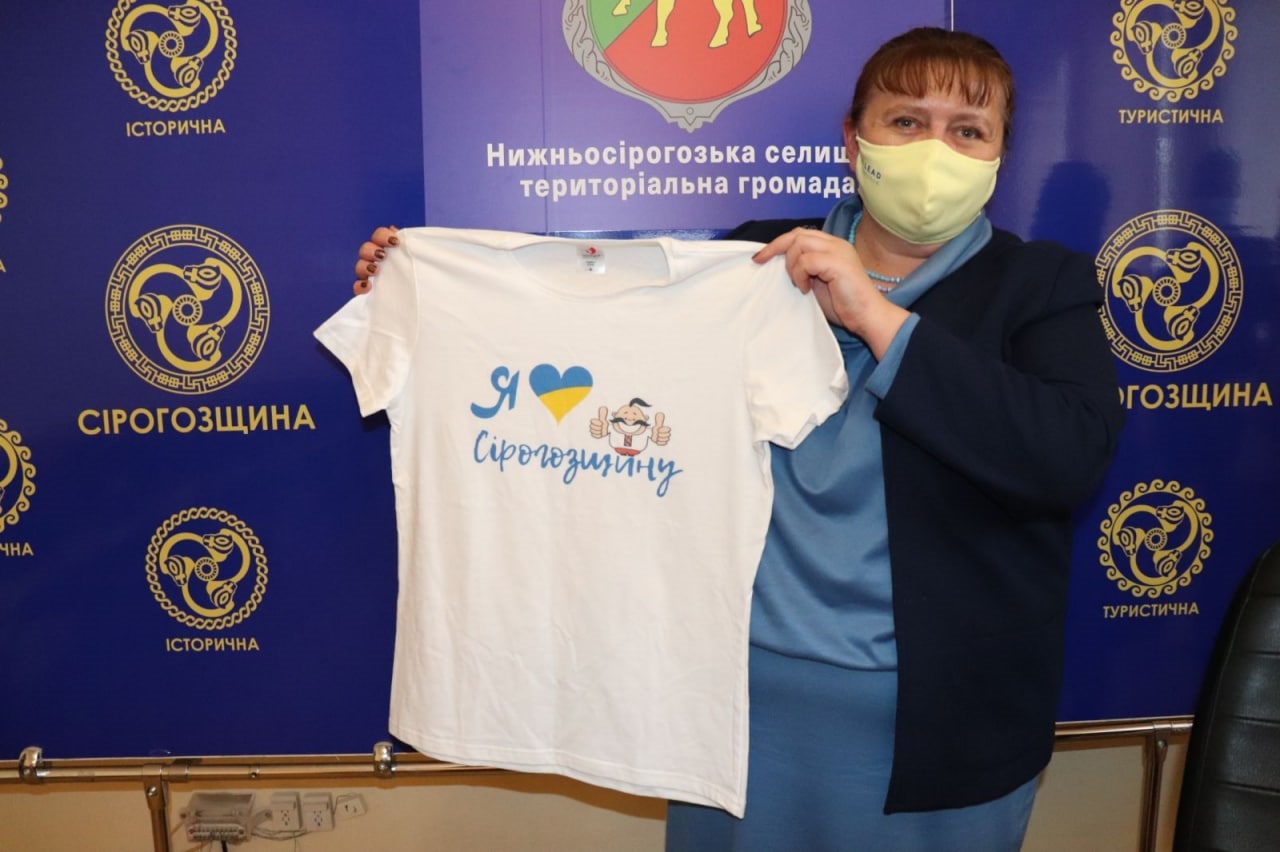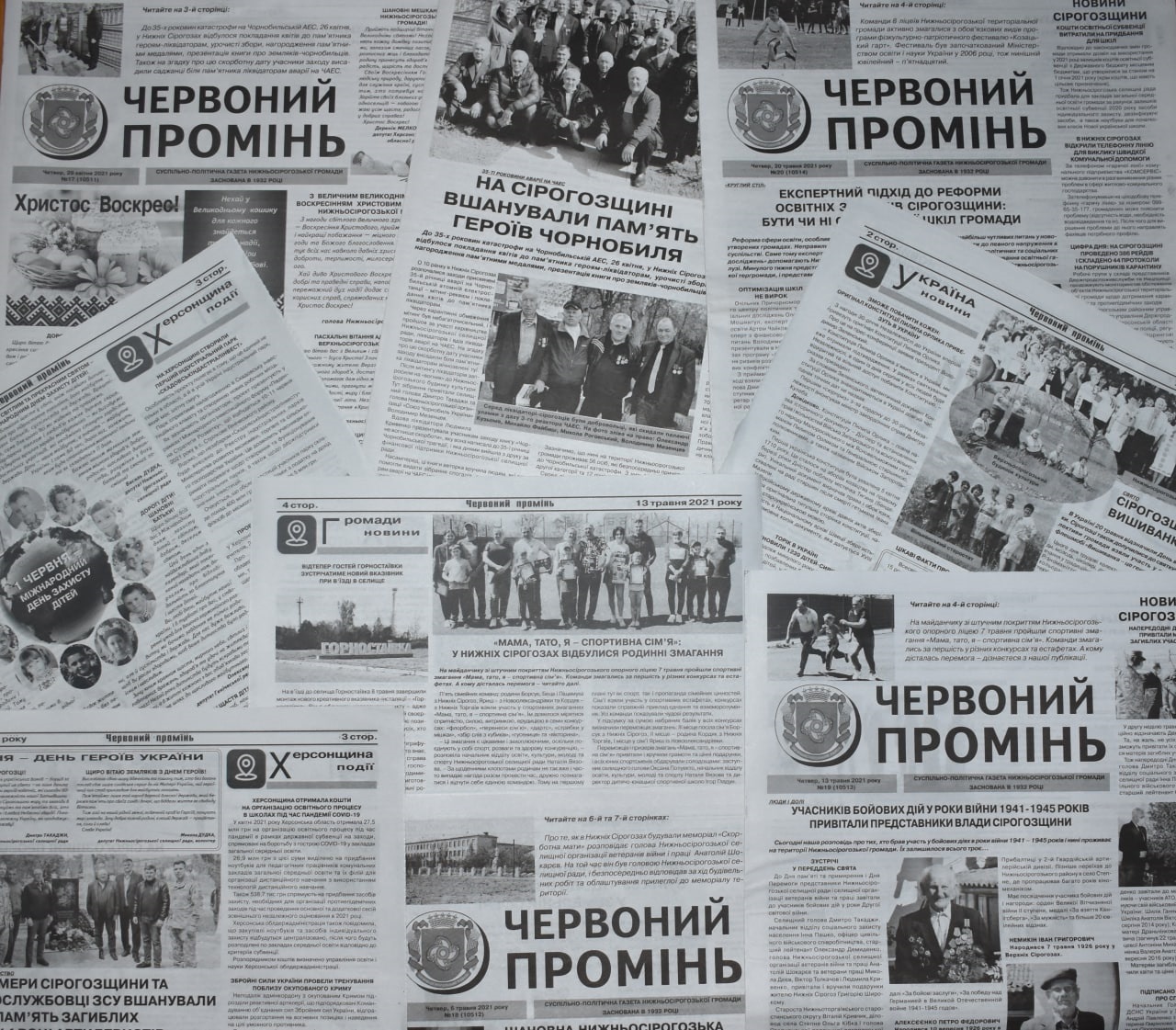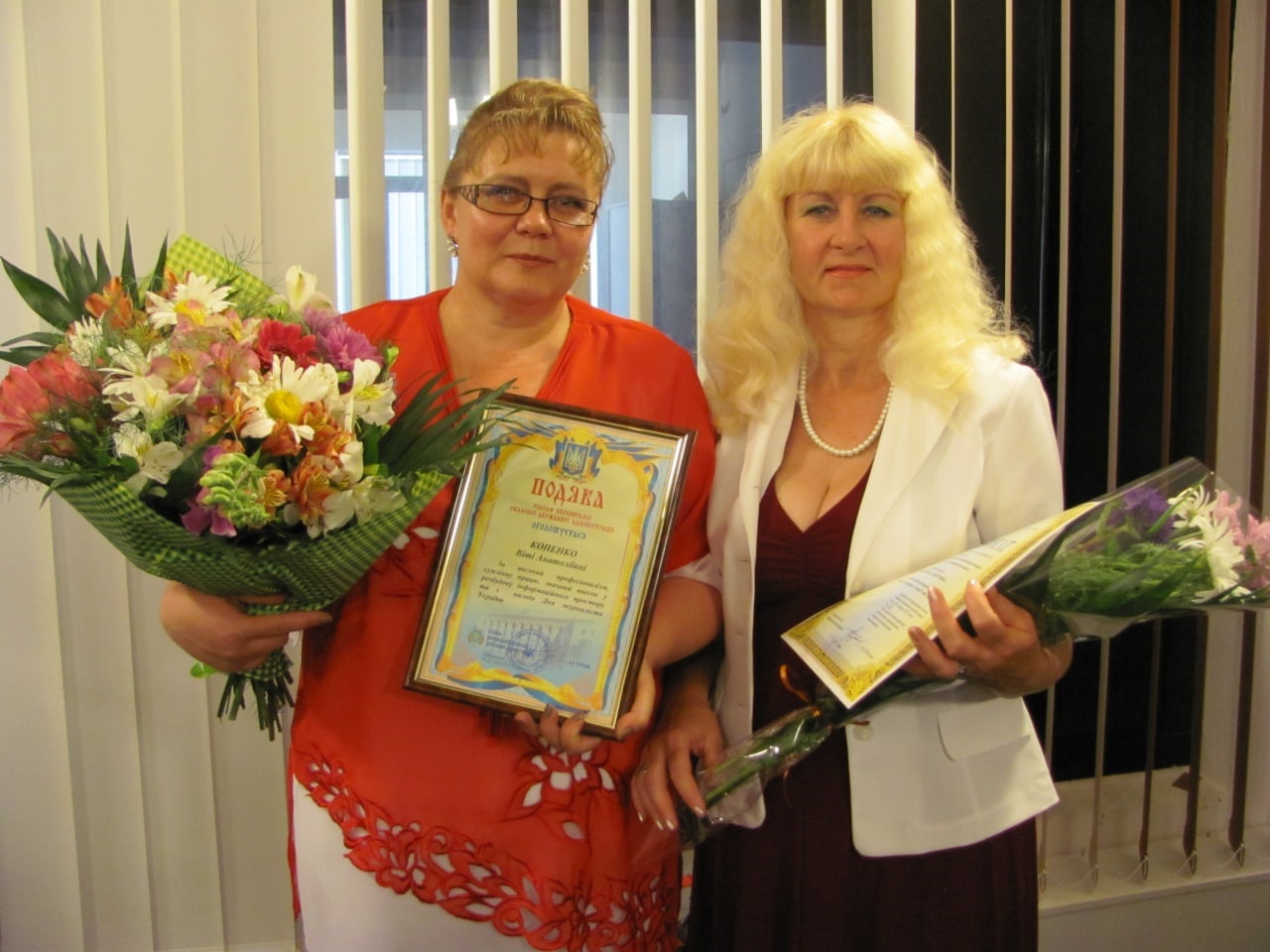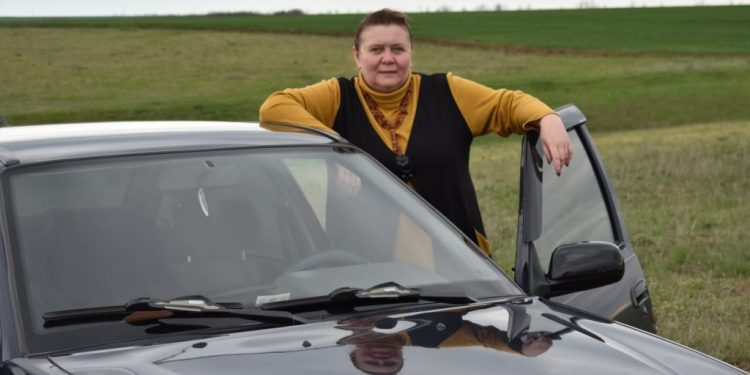Vita Kopenko is the editor of the Chervonyi Promin newspaper in Nyzhniosirohozke. When the large-scale war began, she woke up in a region now occupied by enemy forces. However, instead of hastily leaving Kherson Oblast, the area she lived in, she chose to stay. She continued to manage and provide information for nearly six months while operating covertly. Eventually, she decided to evacuate when her safety was put at risk due to the presence of informants and individuals collaborating with the enemy. Her story, is told in her own words for the NUJU website.
“We woke up in the morning, and there were already Russian troops…”
Kyiv. Streets. Bustle. We meet with Vita Kopenko, a journalist displaced due to the ongoing situation and for whom such weather is very unusual. After all, where she’s from and where her home is, there’s hardly any snow. Her native Kherson Oblast is typically sun-soaked no matter the season.
— When you come to Kyiv for a day, two, or three, it’s one thing, but living here longer… I miss the sun here. Clouds, rain, snow… I used to get by without an umbrella altogether. We hardly ever have snow and rain – it drizzles for about ten minutes, and that’s it,— Vita begins her story.
In Kyiv, the journalist settled on the Left Bank, symbolically, as she is from the left bank of Kherson Oblast. This war quickly and dramatically affected her hometown. More accurately, there was no war for her then because, on February 24, the inhabitants of the left bank of Kherson Oblast woke up under occupation.
— We woke up in the morning, and there were already Russian troops… We’re not far from Crimea. They blocked the exits from the settlements. Only on March 13 did they bring us bread for the first time. Well, those Russian intruders, they didn’t want to eat their own, they were looking for ours, Ukrainian! They brought their cabbage soup in bottles to sell. It was horrifying! Some slop! And the potatoes were canned in bottles. Now explain why? Bottles cost more than potatoes! People didn’t buy such things, and they refused their “humanitarian aid,”— our interlocutor says.
At first, Vita refused to evacuate from her hometown. Of course, the occupation was frightening, but while hiding, the journalist continued to work. She says that during those days, the training sessions by the National Union of Journalists of Ukraine (NUJU) were of great help.
— When the war started, the union held a series of online training sessions: how to behave under occupation, dress, and go out on the street… Those were such practical advice that they helped us survive,— Vita recalls.

“Our website didn’t work for just one day – February 25, and then the news came out daily.”
During that time, the journalist worked for an online publication since her printed newspaper, the Chervonyi Promin, had not been published since the occupation began.
— On February 24, everything just collapsed. Our newspaper came out that day, but Ukrposhta (Ukraine’s national postal service) didn’t deliver it. It was printed in Kherson, and everything was already blocked. Then the printing house was plundered, just like our newspaper’s editorial office: there was nothing left for us,—Vita sighs.
And now the journalist is without a laptop or computer, camera, voice recorder, or phone – like a hunter without a rifle. But Vita managed to find projects and apply for grants, which allowed the editorial team to keep working. Volunteers managed to deliver equipment to the occupied territory through all possible means.
— Our website didn’t work for just one day – February 25, and then the news came out daily. The most challenging part was communication. Although later, we got used to it and knew that when there’s no internet, it means Russian equipment is being rearranged. It was verified: they would switch off the internet for two or three days in such cases,— Mrs. Kopenko recalls.

But as soon as the journalists learned to adapt to the presence of the internet, the occupiers also jammed mobile communications and Ukrainian television – complete informational isolation ensued.
— This was against the backdrop of them already taking over the offices of various newspapers: in Kherson, Skadovsk, and Berislav. The occupiers started publishing their newspapers. It was so disheartening… And they did everything expensively – full color, good paper,— the journalist recounts. — And they did it so quickly, set everything up. Then their television appeared – they began a massive information attack.
But that attack was in vain because the residents of Kherson began to gather in the streets and share news from Ukraine with each other.
— Those with good coverage at home or near their building stood there with laptops or phones: they read, watched, and discussed. It turned out people knew everything as it was while the Russians were churning out their fakes— Vita smiles.

“I had never before considered freedom, I didn’t know its value. We are free people.”
She endured occupation until August. When the Russians began to search for her more persistently, she left, although she had been receiving threats from the enemy in messages almost since the moment of the occupation.
— Local collaborators threatened me. They asked, ‘Haven’t you closed yet? Are you leaving? They’re coming after you,— our interlocutor recalls. — I got used to it, but later, I had to leave for safety reasons. And here, I can be more useful to myself and my team. And how I left! I traveled for five days. With an acquaintance. And we were like the way we were advised in the NUJU training sessions – two ‘housewives.’ The road was grueling. For us, young and healthy, it was difficult to endure. Unbearable heat… No water, no proper conditions, dreadful unsanitary conditions… Words can’t describe it: there were just layers of filth at the rest stops…”
After enduring a grueling and nightmarish journey, Vita Kopenko eventually arrived in a part of Ukraine that was not under occupation — free Ukraine. She felt a sense of relief and tranquility for the first time in a while. Despite the ongoing challenges, including rocket attacks and electricity shortages, being in a free and liberated area finally made her feel at ease.
— I had never before considered what freedom is, I didn’t know its value. We are free people. We were and are free. And when oppression began, that was the scariest. We saw manifestations of 1937, when people started reporting on their neighbors, godparents… And then the Russians, when they released those they detained, would tell and show who had informed on whom – people confronted each other,— Vita recalls.
In the liberated area, Vita Kopenko, the journalist from Kherson Oblast, is actively working on creating new initiatives and projects. Her primary goal is to secure employment opportunities for her entire team. Together, they are searching for ways to earn money and eagerly await the day when they can once again publish their newspaper, the Chervonyi Promin, in their home on the left bank of the Dnipro in Kherson Oblast. But for that to happen, the invaders need to leave.
This series, titled Executed Free Speech, is created as part of a project Drawing Ukrainian And International Audience’s Attention To Serious Violations Of Human Rights And Crimes Against Journalists And Mass Media By The Russian Federation, which is performed by the National Union of Journalists of Ukraine, with support from the Swedish non-profit organization Civil Rights Defenders.
JOURNALISTS ARE IMPORTANT. Stories of Life and Work in Conditions of War is a cycle of materials prepared by the team of the NUJU with the support of the Swedish human rights organization Civil Rights Defenders.
#CRD

 THE NATIONAL UNION OF
JOURNALISTS OF UKRAINE
THE NATIONAL UNION OF
JOURNALISTS OF UKRAINE
















Discussion about this post